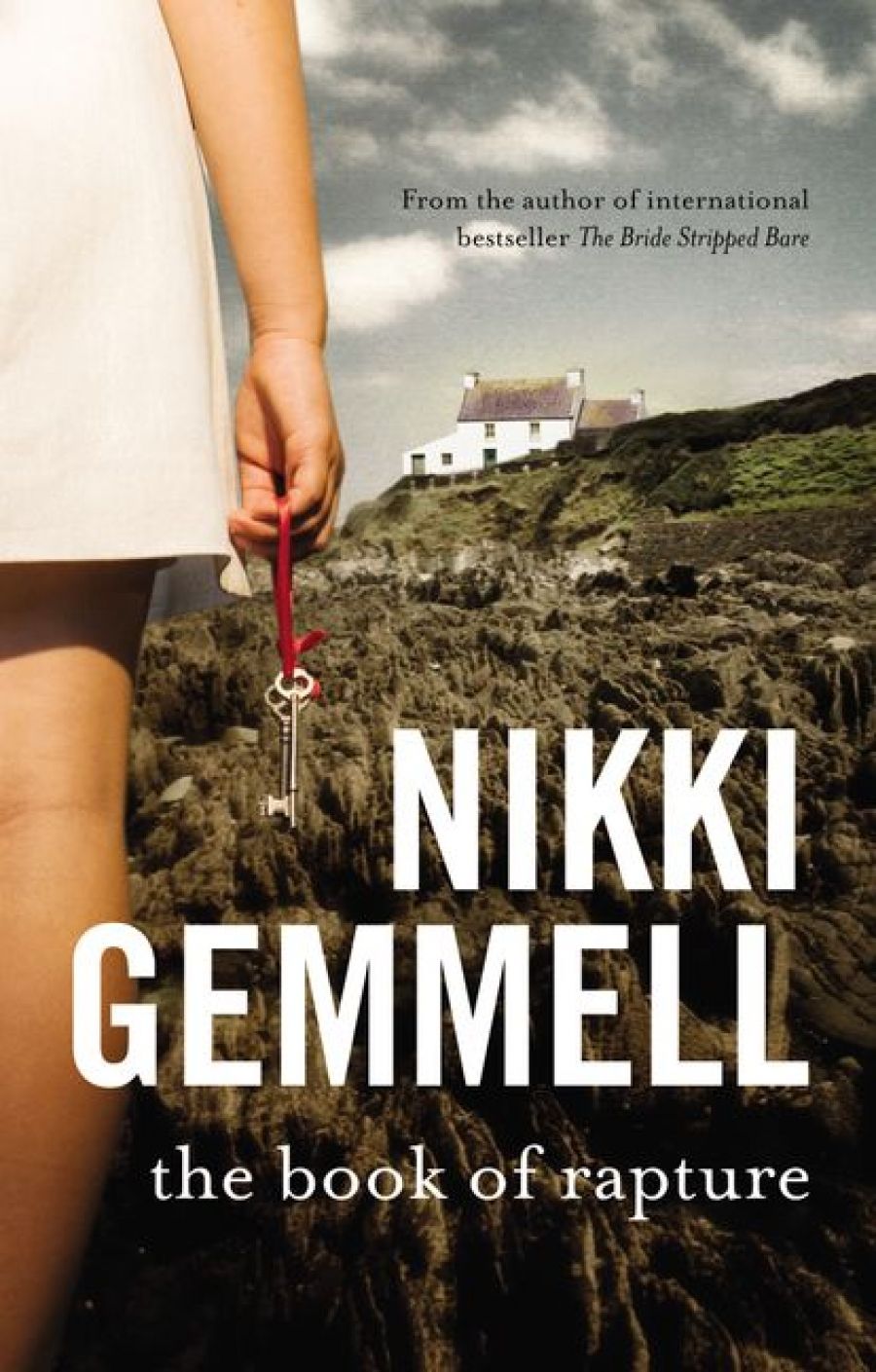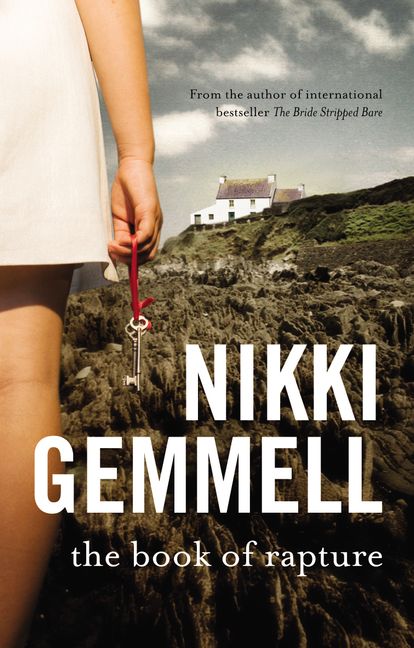
- Free Article: No
- Contents Category: Fiction
- Review Article: Yes
- Article Title: In the basement
- Online Only: No
- Custom Highlight Text:
One could be forgiven for thinking that after the succès de scandale of her previous novel, The Bride Stripped Bare (2005), Nikki Gemmell’s next novel would also address the permutations of sexual desire, particularly since the title of her latest novel is The Book of Rapture and the cover is a riot of fleshy red and purple. This time round, though, Gemmell is more interested in exploring religious, scientific and familial rapture. There is barely a skerrick of sex within the deckle-edged pages.
- Book 1 Title: The Book of Rapture
- Book 1 Biblio: Fourth Estate, $29.99 pb, 273 pp
- Book 1 Cover Small (400 x 600):

- Book 1 Cover (800 x 1200):

The novel is set in an age of shadows and oppression, a Kafkaesque and Orwellian world of political volatility and religious fundamentalism. Their mother (the novel’s narrator) has been working on a top-secret project, a biological weapon of mass destruction that can eliminate an entire race. This work now threatens the lives of her offspring. The Book of Rapture cautions against extremism at both ends: the abuse of scientific research as well as the atrocities committed in the name of religion. The narrator takes a hard-line approach to spirituality of any kind; she does not differentiate between creeds or degrees of zealotry. Faith to her is an affront to reason; she believes humans have evolved beyond it. Her husband, Motl, more circumspect, wonders whether it is possible to have a moral compass without the guidance of God.
The Book of Rapture is about displacement and home, rationality and spirituality, but it is when she writes about maternal obsession – this ‘greedy, voluptuous love’ – that Gemmell’s prose sings. Separated from her darlings, the narrator waxes lyrical about these ‘three vivid-hearted kids, so brimming with life. The rapture of them, the rapture; you feel haloed by light as you watch.’
Each of the children is described with the mother’s discerning and loving eye. There are the twins Mouse and Tidge, the former hesitant and cynical, the latter sunny and trusting, the ‘St Bernard of the family, crashing through life with his big lollopy tongue and licking people adoringly ’. Watching over them is big sister Soli, who feels the pressures of parental surrogacy. Above all, maternal anxiety is at the core of the narrator’s story. She is wracked by guilt that she has placed her dangerous career above her family’s well-being and abnegated one of the responsibilities of parenthood: the protection of her young.
Gemmell’s fifth book has idiosyncratic quirks that will charm or annoy some readers. Each short chapter concludes with a mantra-like saying from a variety of religious sources, including the Koran and the Bible, and a scattering of authors, such as Oscar Wilde and Philip Larkin. Each italicised and underlined quotation refers directly or obliquely to the preceding chapter. Sometimes these contrivances add a new dimension to the story; at other times this addendum seems unnecessary, trite as a fortune cookie (e.g. ‘The sensible man is not influenced by what people think’).
Irritatingly, the unnamed narrator and her partner habitually refer to each other in the third person. Their pet names may be Gemmell’s way of revealing their mutual devotion and their reliance on fixed familial roles when all around them is in flux. Despite their religious differences, Motl and his wife share a satisfying and passionate marriage. It is this intense love of family that provides the counterpoint to the unstable and repressive régime that curtails their freedom.
More problematic is Gemmell’s decision to reprise the present tense and second person for her narrator. Even though the voice is purportedly from the woman–scientist–captive, it is omniscient, privy to actions and motivations that the narrator hasn’t witnessed (‘You gaze at them and gaze at them like a curiosity-crazed tourist from a glass-bottomed boat’). Although she herself is incarcerated elsewhere, she is still able to describe her children’s every moment, noting their hopes and fears. This narrative device is intrusive, often overriding the children’s experiences with an authority that seems unnatural and contrived.
Moreover, despite Gemmell’s overweening ambition to explore the realities of this frightening social and cultural order, the bulk of the narrative doesn’t stray far from the claustrophobic basement. Apart from an earlier episode at their sun-drenched seaside cottage, far from the country’s internecine battles, The Book of Rapture mostly focuses on the family’s imprisoned status. Though there are clues about the corrupt and clandestine operations of the new government and the narrator’s compromised stance on ethnic cleansing, the story becomes hemmed in by its narrow scope. The reader has the same view of the outside world as the children themselves: through a window.


Comments powered by CComment